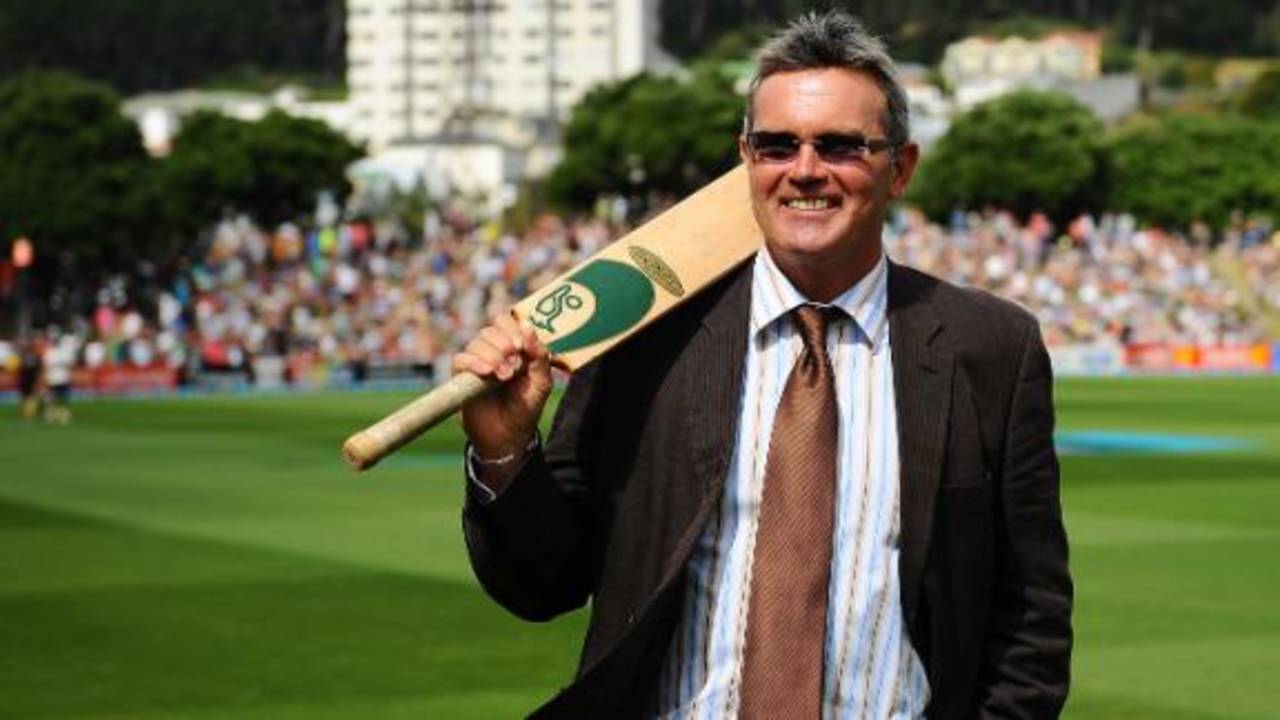Martin Crowe dies aged 53
Martin Crowe, the former New Zealand captain, writer, broadcaster and mentor, has died in Auckland at the age of 53
Daniel Brettig
Mar 3, 2016, 12:05 AM
Martin Crowe, the former New Zealand captain, writer, broadcaster and mentor, has died in Auckland at the age of 53.
Crowe had suffered from lymphoma since 2012, and withdrew from public life in his final months.
"It is with heavy hearts that the family of Martin Crowe, MBE advise his death," his family said in a statement.
"Diagnosed in September 2014 with terminal double hit lymphoma he passed away peacefully today, Thursday 3rd March in Auckland surrounded by family.
"The family request privacy at this time."
Widely considered the finest batsman in New Zealand cricket's history, Crowe debuted against Australia aged 19 in 1982, and quickly established a reputation as the most meticulous of batsmen, his technique widely admired.
In all he would tally a New Zealand record 17 Test centuries, including an innings of 299 against Sri Lanka in Wellington that also stood as the national record until Brendon McCullum overtook it, also at the Basin Reserve.
Arguably Crowe's finest month was his inventive and inspirational leadership of New Zealand during the 1992 World Cup, when he took an unfancied side to the top of the competition table before a narrow defeat to eventual champions Pakistan in the semi-final at Eden Park. This performance confounded many, not least the co-hosts Australia who were completely overshadowed by Crowe's tactics and skill during the opening match of the tournament.
Knee problems were to curtail Crowe thereafter, and he retired from the game in 1995, aged only 33. His post-playing life was to be equally rich and constructive.
He worked often as a television commentator, and was also visionary in his invention of a third format for the game, Cricket Max, that served as a precursor to Twenty20.
In 2011, Crowe made the bold decision to attempt a return to cricket at the age of 48, turning out for his local club side Cornwall with a view to playing again for Auckland. He was to be curtailed not by slowed reflexes but a series of soft tissue injuries.
Most valuably he served as a mentor for several members of the New Zealand side, notably Ross Taylor. After his replacement as captain by McCullum in 2012, Taylor leaned heavily upon Crowe as he rebuilt his confidence and career, going on to play brilliantly for a Test double century against in Perth last year, the highest ever score by a visiting batsman in Australia. Michael Clarke, the former Australia captain, was another friend.
Crowe's influence was also seen in his writing, much of which appeared on ESPNcricinfo, where his advocacy of a more personable era of player behaviour was taken up by McCullum's team. At the end of the recent Australia series, McCullum noted to team-mates that "we got our soul back", and Crowe's influence in this is not to be underestimated.
Despite worsening health as he sought numerous remedies to his lymphoma, Crowe was a welcome presence at last year's World Cup, where he watched McCullum's team go one better than the 1992 team by making the final. Crowe was presented with ICC Hall of Fame status during the pool game between New Zealand and Australia in Auckland, and was also present for the final.
One of his last public appearances would take place in April, when he delivered a typically articulate and heartfelt tribute to the retiring Daniel Vettori.
Crowe is survived by his second wife Lorraine Downes, daughter Emma and step-children Hilton and Jasmine. Funeral arrangements will be announced in due course.
Daniel Brettig is an assistant editor at ESPNcricinfo. @danbrettig
